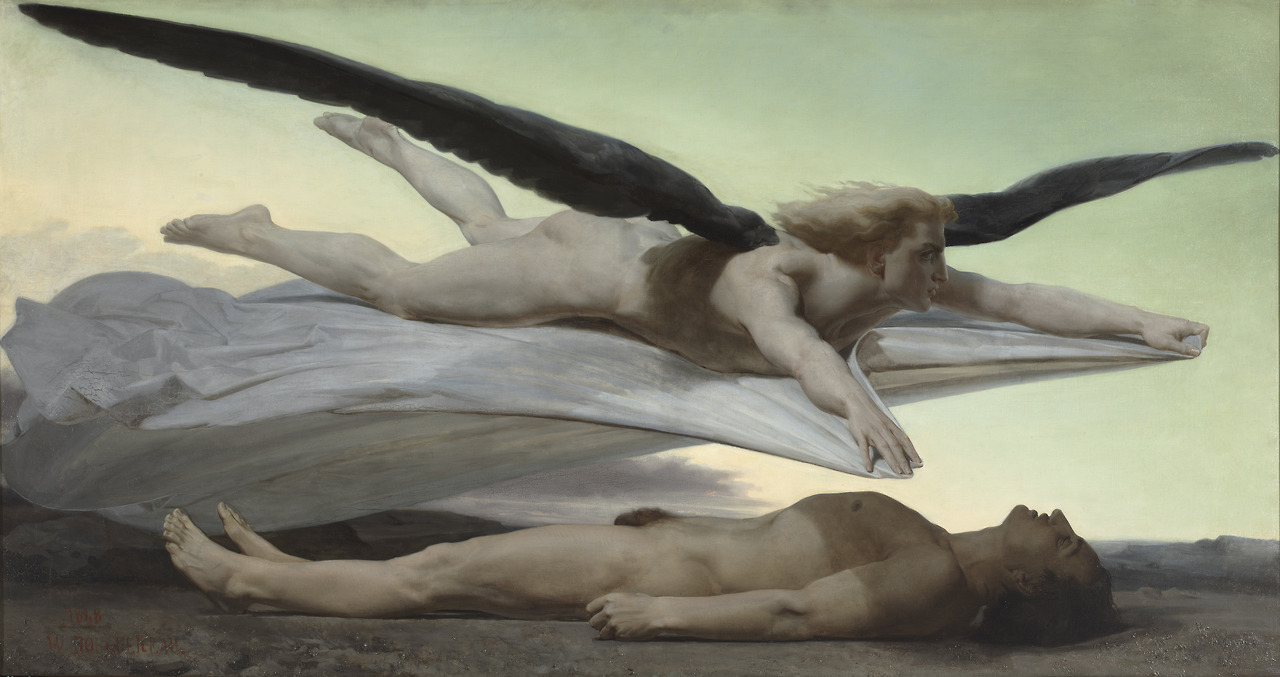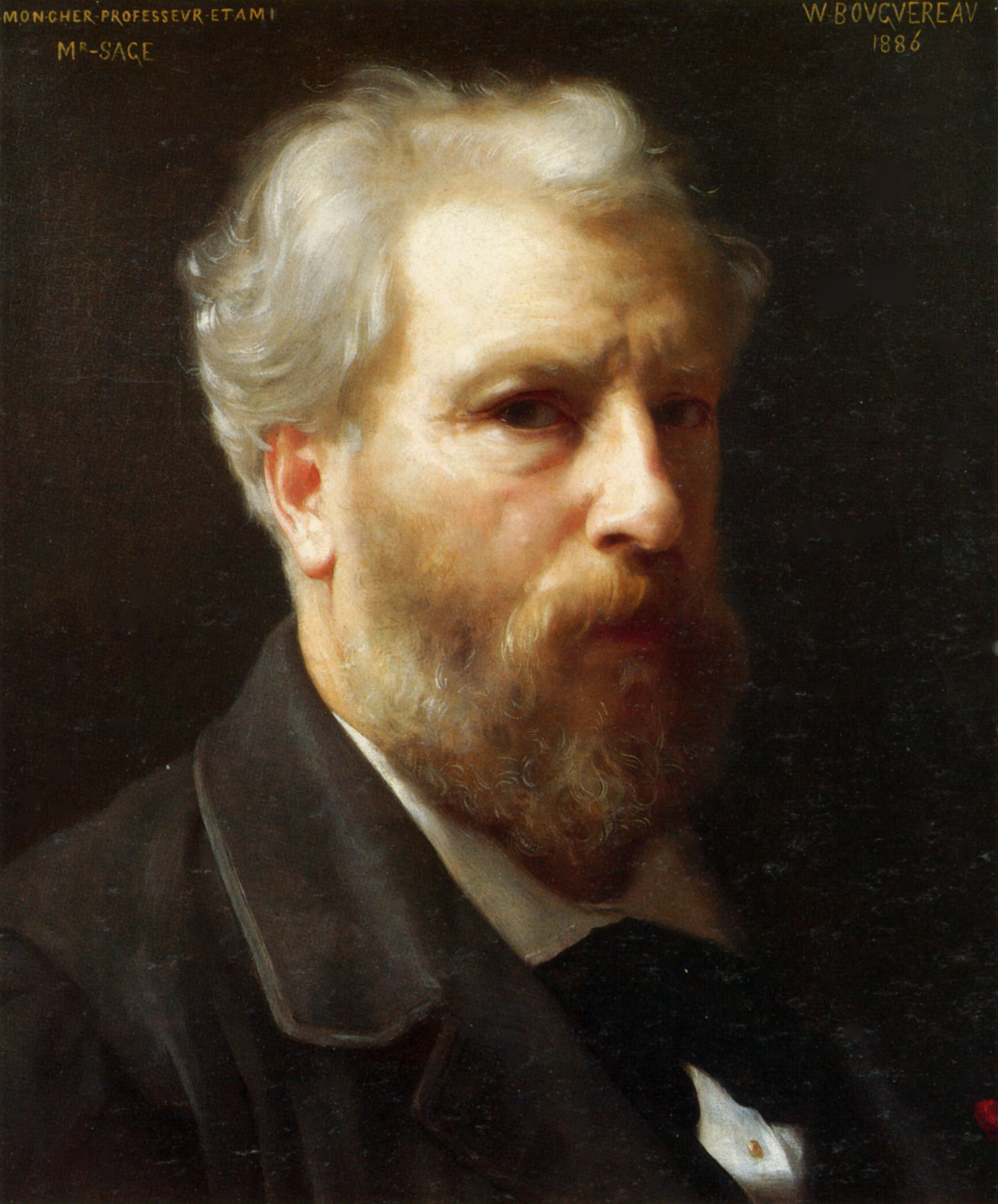Equality is Bouguereau's first major painting, produced when he was a young man of 23, after two years at the Ecole des Beaux-Arts de Paris. Subjected to heavy pressure from his family, the artist knew he had to succeed at any cost. As the critic Léon Plée would write later, he was then "in a hurry to make his name". For his first submission to the Salon, Bouguereau presented this spectacular, large format painting of an angel of death covering the body of a young man with a shroud. The image would move anyone with its evocation of the inevitability of death. This sombre vision serves as a warning, as the note on a preparatory drawing demonstrates: "Equality. When the angel of death covers you with its shroud, your life will have been meaningless if you have not done some good on earth”. But the equality in question is not exactly the same as that which liberals all over Europe aspired to achieve in 1848. Bouguereau is keeping to a conservative and deeply religious idea, where equality, far from being a social or political objective, only exists in the afterlife. The painting is therefore reminding us of both Bouguereau's anxiety about the political changes of his time and his more personal doubts about his own future.




Equality before Death
oil on canvas • 141 x 269 cm
 William-Adolphe Bouguereau
William-Adolphe Bouguereau